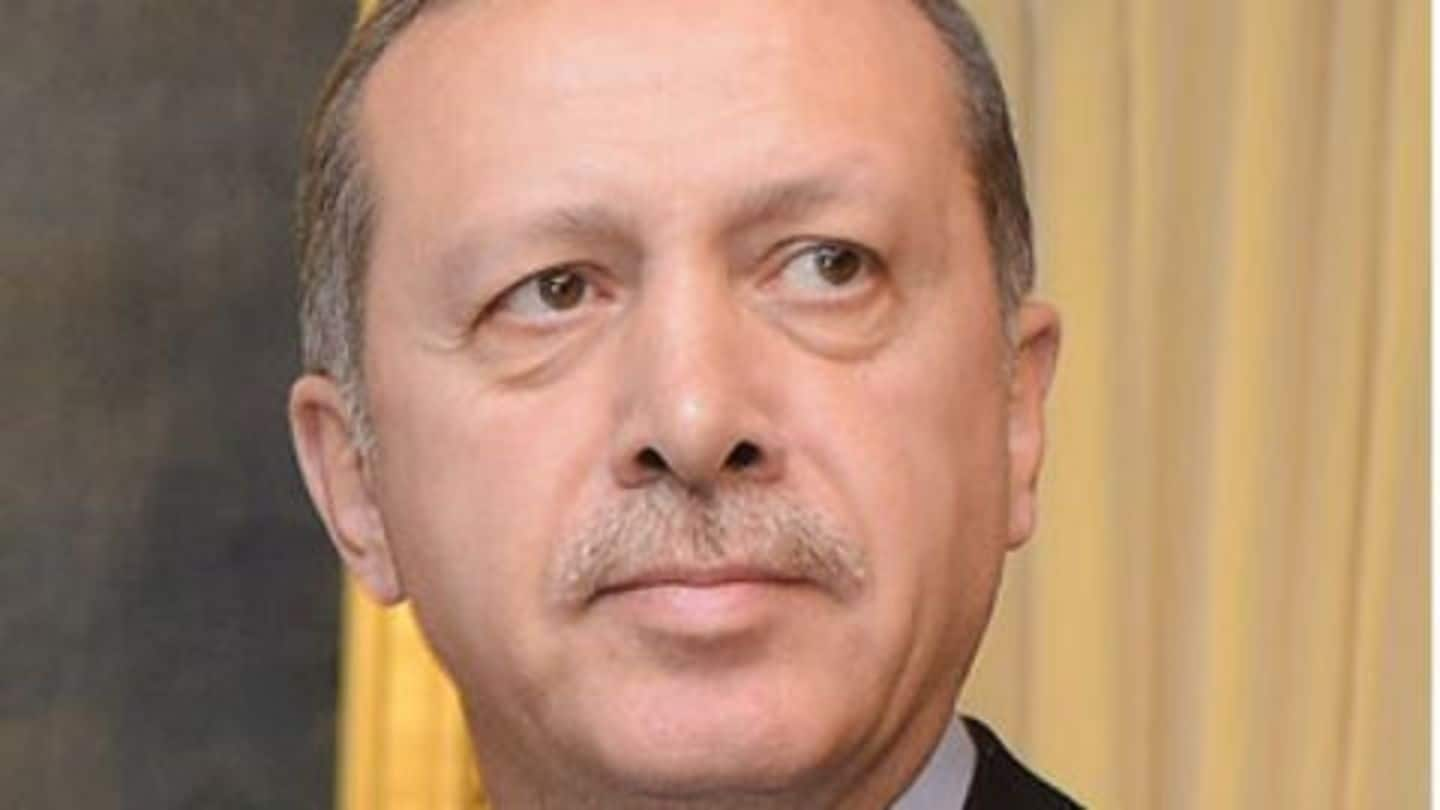
Turkey's Erdogan to revive bid for Executive President
What's the story
Spokesperson of the president Recep Tayyip Erdogan said that Turkey may hold a referendum on constitutional changes to create an executive presidential system. The president currently has limited constitutional powers and Erdogan has long been pushing for changes that would strengthen his powers to govern. However, Erdogan's AKP party is 13 seats short of 330 to call a referendum on any constitutional change.
24 Aug 2015
Turkey's president calls snap polls
In June elections, incumbent President Erdogan's AKP lost its overall majority in Turkey's 550-seat parliament forcing the party to seek a coalition partner. Further, months of negotiations to form a governing coalition failed resulting in a hung parliament. Following this, Erdogan called early elections "in line with the constitution." It was the first time President called snap polls since Turkey became Republic in 1923.
1 Nov 2015
Turkey goes to polls
Turks voted in parliamentary elections for the second time in five months in an election that would determine whether the ruling party can restore the parliamentary majority it enjoyed for 13 years. More than 54 million people were registered to vote at 175,000 stations. Opinion polls predicted similar result as that of June election meaning Erdogan's AKP would have to form a power-sharing coalition.
Information
Shortest duration of Turkish Parliament
The snap election rendered the 25th Parliament of Turkey, elected in June, the shortest in the Grand National Assembly's (parliament) history, lasting for just five months and being in session for a total of 33 hours.
2 Nov 2015
AKP regains majority in a 'shocking' victory
Turkey's ruling Justice and Development (AK Party) regained its majority winning 317 seats in the dramatic snap election. The results defying the opinion polls shocked the observers world around. Erdogan was successful in invoking the AKP's single-party rule as the best guarantee of Turkey's security and national interests. Critics argued that the victory is rooted in AKP's campaign, built on fear and polarization.
Criticism
Criticism of Turkish elections
European observers criticised the Turkish government for stifling media freedom and censorship of pro-opposition media outlets in the run-up to the election. The Organization for Security and Cooperation in Europe (OSCE) said that an increase in violence, particularly in the south-east, "restricted some contestants' ability to campaign freely". The White House too voiced its displeasure at the "intimidation" of Turkish journalists during the election.
2 Nov 2015
Erdogan says world must respect the election results
Turkey's president attacked the media criticism and said the world must respect the results of the election. He said "Now a party with some 50% [of the vote] in Turkey has attained power... This should be respected by the whole world, but I have not seen such maturity." Erdogan hailed the result saying, "The country manifested itself on 1 November in favour of stability."
Information
Parliamentary v Presidential System
Turkey currently has a parliamentary system of government where Prime Minister is head of the government and President is head of the state holding a ceremonial role. Whereas in a presidential system, the president is both the head of the government and head of the state.